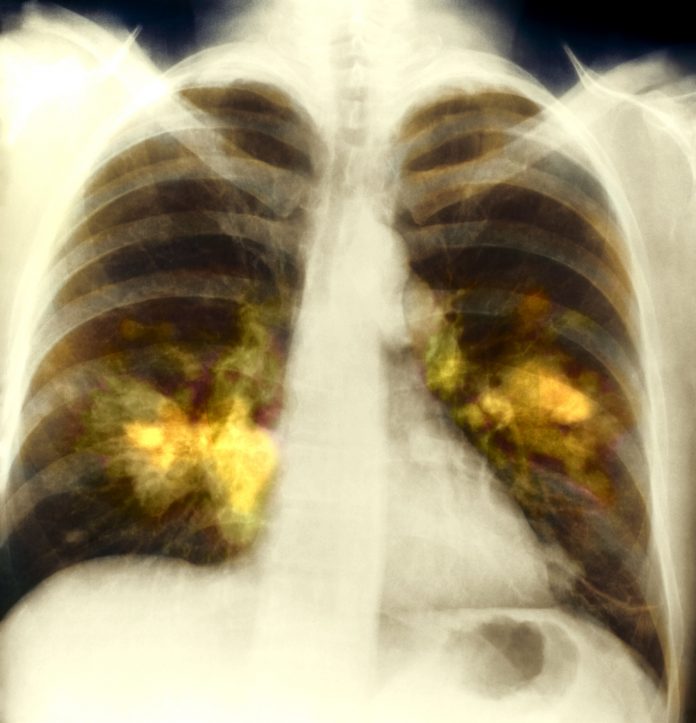
AstraZeneca (AZ) announced Thursday that its supplemental Biologic License Application has been granted priority review by the U.S. Food and Drug Administration (FDA) for the treatment of limited-stage small cell lung cancer (LS-SCLC). The regulatory decision is based on results of the ADRIATIC Phase III clinical trial in patients with LS-SCLC whose disease has not progressed following platinum-based concurrent chemoradiotherapy (cCRT).
The FDA’s Priority Review is granted to applications for medicines that, if approved, would offer significant improvements over available options by demonstrating safety or efficacy improvements, preventing serious conditions or enhancing patient compliance. Durvalumab was also recently granted a Breakthrough Therapy Designation to accelerate the development and regulatory review of the drug in this same setting.
“This Priority Review reinforces the potential of IMFINZI to transform outcomes for patients as the first and only immunotherapy to demonstrate a survival benefit in limited-stage small cell lung cancer,” said Susan Galbraith, executive vice president, Oncology R&D with AZ. “There is an urgent need for new treatment options that improve upon the standard of care in this setting, which has not changed in forty years, and we look forward to working with the FDA to bring IMFINZI to patients as quickly as possible.”
Durvalumab (sold under the brand name Imfinzi) is an immune checkpoint inhibitor that was first approved by the FDA in 2017 and in the European Union in 2018. Approved uses for the drug include the treatment of non-small cell lung cancer, extensive-stage small cell lung cancer (ES-SCLC), bile ducts and gallbladder cancer, unresectable hepatocellular carcinoma and advanced or recurrent dMMR endometrial cancer.
Data from the ADRIATIC Phase III trial showed durvalumab reduced the risk of death by 27% compared with placebo based on an overall survival hazard ratio of 0.73; 95% confidence level. Estimated median overall survival was 55.9 months for durvalumab versus 33.4 months for placebo and an estimated 57% of patients treated with durvalumab were alive at three years compared with 48% on placebo.
The drug also reduced the risk of disease progression or death by 24% versus placebo. Median progression-free survival was 16.6 months for durvalumab versus 9.2 months for placebo. An estimated 46% of patients treated with durvalumab had not experienced disease progression at two years compared to 34% on placebo.
“The ADRIATIC results represent a breakthrough in limited-stage small cell lung cancer, a highly aggressive disease where recurrence rates are high and only 15 to 30% of patients survive five years,” said David R. Spigel, MD, chief scientific officer at Sarah Cannon Research Institute and an investigator in the trial. “Durvalumab is the first systemic treatment to show improved survival for these patients in decades and should become a new standard of care in this setting.”





